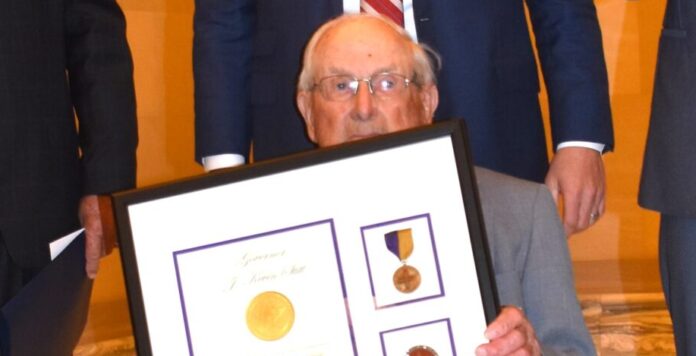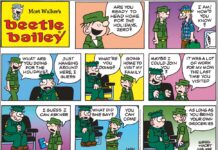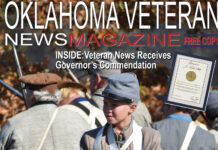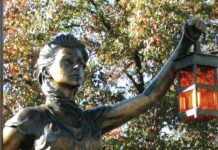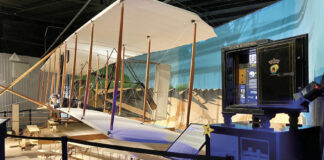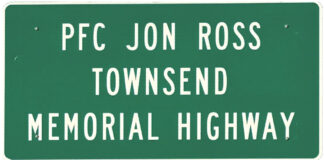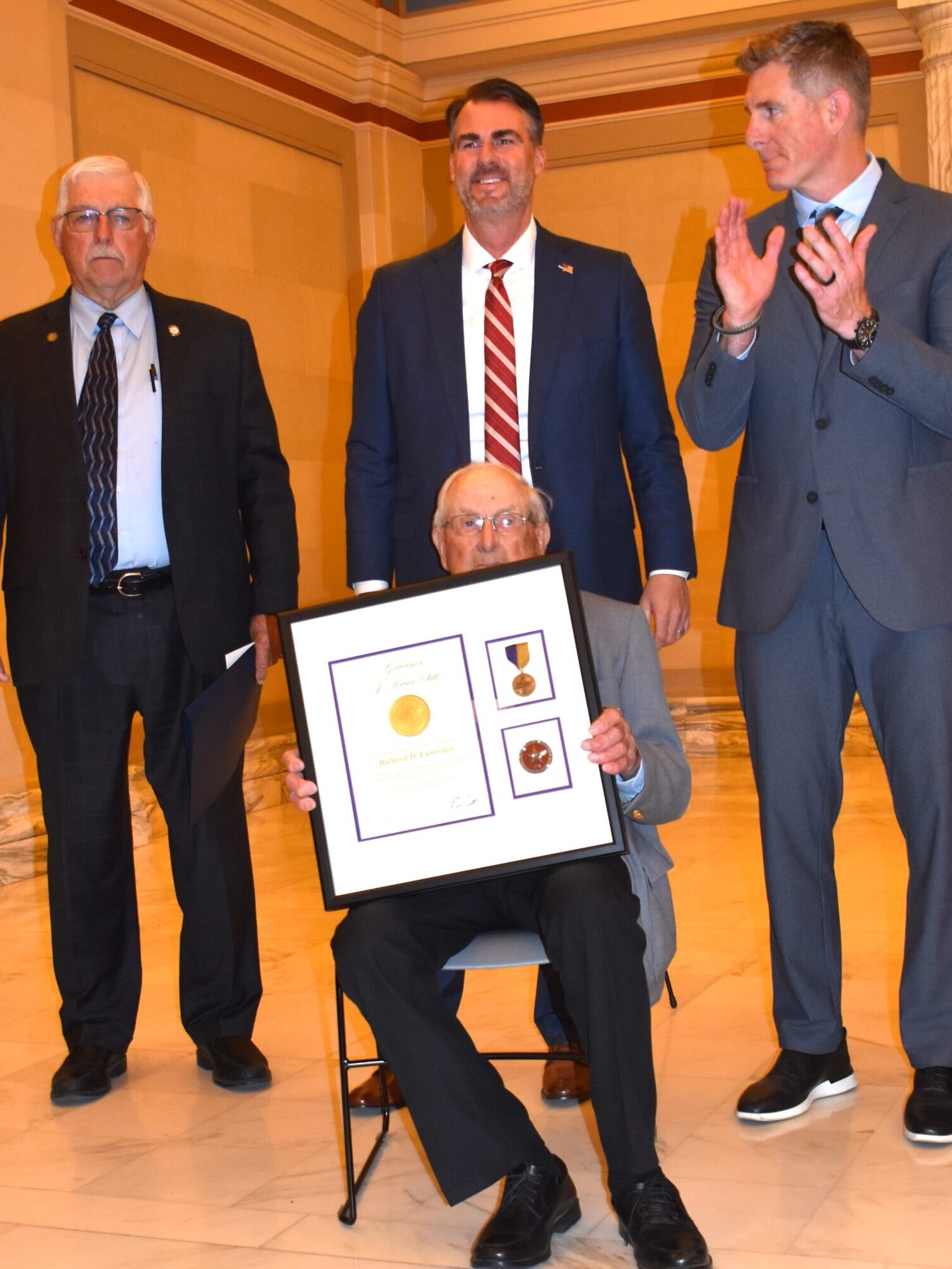
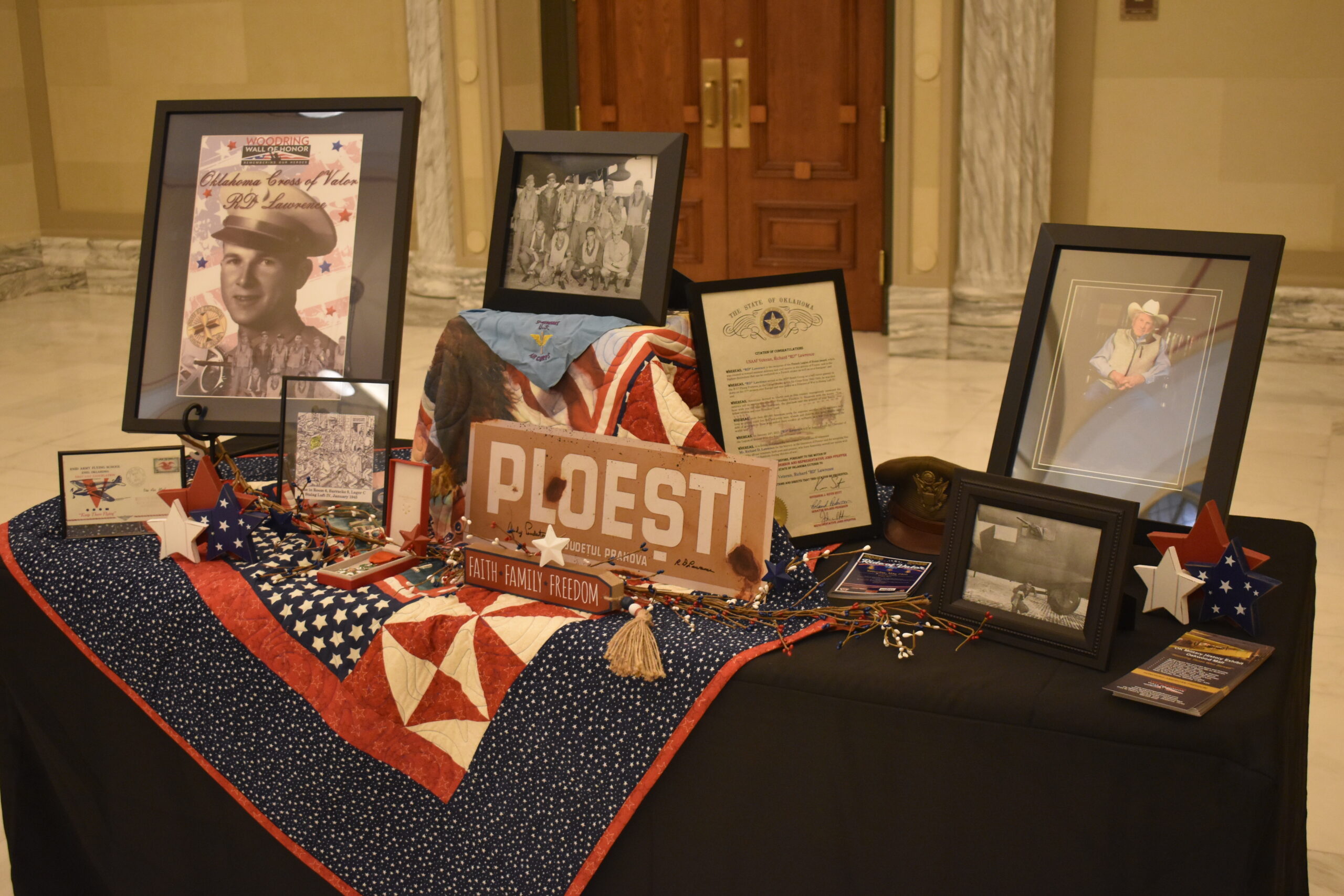
When your life is in danger, some memories don’t go away, even if they occurred 81 years ago. Like firing twin .50 caliber machine guns at Nazi airplanes from the ball turret underneath a B-17 Flying Fortress.
“I hit a Messerschmidt (fighter) one day. He was gone away from me and of course, when they get by, they turn their belly up – they’re armor-plated on the bottom. I could see some tracers going off from him. I never got him down. He (fighter) was a longways away. He had come through our (bomber) group once and got away but he didn’t come back,” explained Richard D. Lawrence, a 102-year-old WWII veteran.
Lawrence was at Oklahoma’s State Capitol in the Hall of Heros to receive the Oklahoma Cross of Valor from Governor Kevin Stitt. Part of Stitt’s address included the following. “His story is one of grit and courage and unbelievable bravery. He answered the call to serve during a time of war, was taken captive by the enemy and he came home with his honor intact. That strength comes from a love of country, a sense of duty, and unbreakable spirit. In Oklahoma, we believe in honoring our heros and we have a real-life hero with us today.”
Lawrence wasn’t alone – lots of family, friends, State Representatives and Senators, uniformed military and veterans gave him a standing ovation when he was called up to get the Cross of Valor enclosed in a glass case.
Others have formally thanked Lawrence too, including a French Counsel who gave him the French Legion of Honor and the Oklahoma Military Heritage Foundation, who inducted him into the Oklahoma Military Hall of Honor.
Before the ceremony, Alfonso Garza, the Veterans Mental Health Program Administrator with Oklahoma’s Department of Veteran Affairs (ODVA), asked R.D. if he had any advice. His answer? First, take it one day at a time. Second, trust in the Lord with all your heart.
When R.D. got home from the war, he went right to work harvesting crops. No two-week vacation swapping war stories at the bar to relax after the ordeal. In a conversation with Galen Culver of the KFOR television station, he recalled, “I got home on my mother’s birthday, June 15th, 1945, and we started cutting wheat that afternoon.’” He married his high school sweetheart, Joanne, right away too – 11 days later.
They had three children: Richard, Julie and Leanna, who were at the ceremony. Leanna, whose married name is Turney, said, “I had wonderful parents…parents that went to everything we went to (activities).”
The ODVA shared a biography that explains Lawrence’s postwar time of peace. “A proud steward of the land, he continues to live and manage the farm, recently keeping busy clearing fields from the seat of his Polaris”…He served “on the boards of the Farmers’ Cooperative of Wakita, the Wakita School Board, and as a longtime Director of Citizens Bank of Wakita. His dedication to agriculture was honored with the title of Oklahoma Farmer of the Year at the Oklahoma State Fair. A man of faith, he served over 60 years as an Elder at both Fairview Christian Church and Wakita Christian Church. In retirement, RD took up golfing and played daily into his early 90s-always with the same group of friends, and more often than not, he came home the winner.”
James Neal of the Enid News & Eagle sat down with R.D. in 2011 and wrote the following. “Today, he remembers those who didn’t make it home as the true heroes from history’s largest war. Their ranks included Lawrence’s brother, Burke, an aircrewman who was killed while on a training flight shortly after the war’s end…Lawrence said, ‘They were all heroes, I thought, those boys who didn’t make it home.’” story/photos by Richard Stephens, Jr., Lt. Col, USAF Retired
Portion of Citation of Appreciation from the Oklahoma State Legislature to Technical Sergeant Richard D. Lawrence.
———————————————–
Whereas, on June 7, 1944, while on a mission to destroy marshalling yards in Budapest, Hungary, R.D. Lawrence’s plane took a direct hit, and he was forced to parachute out. He was captured a week later and held as a prisoner of war in Stalag Luft IV Prison Camp in Gross Tychow, Pomerania (now Tychowo, Poland) and later forced on a 500-mile death march. On May 2, 1945, he was liberated by the British soldiers and returned to Enid just in time for harvest.


